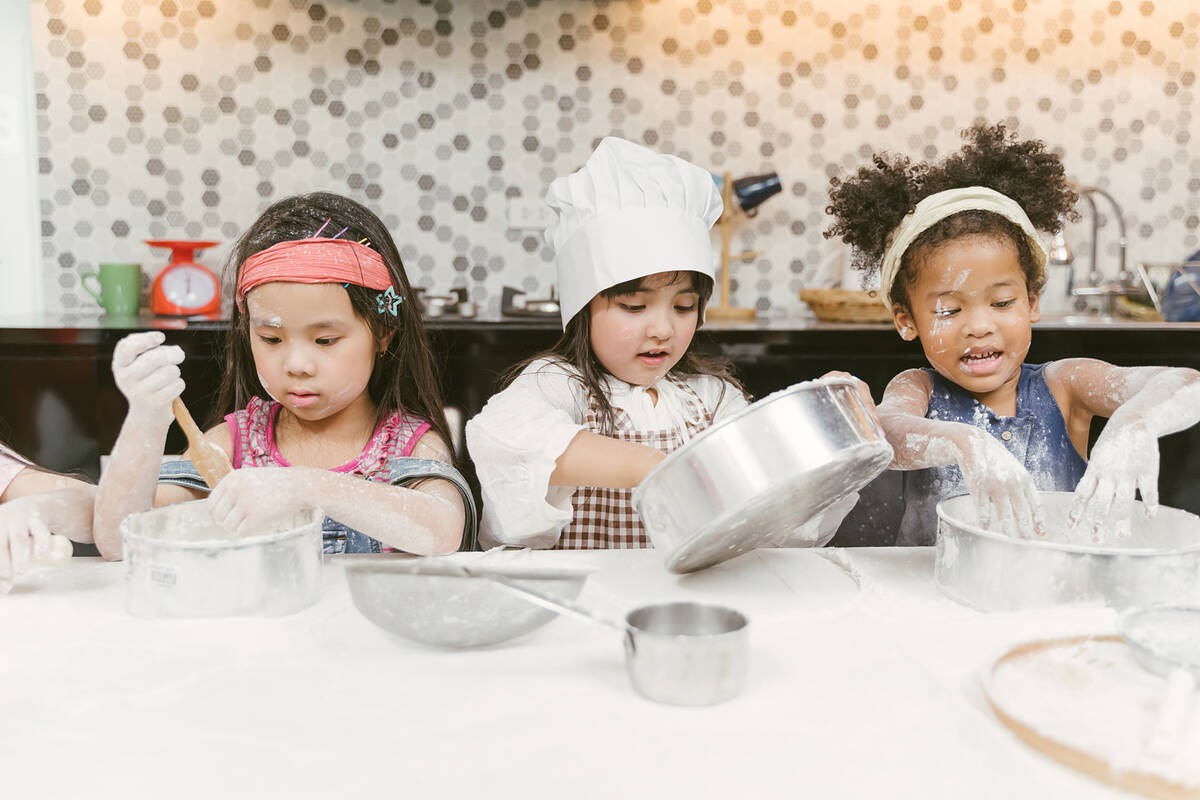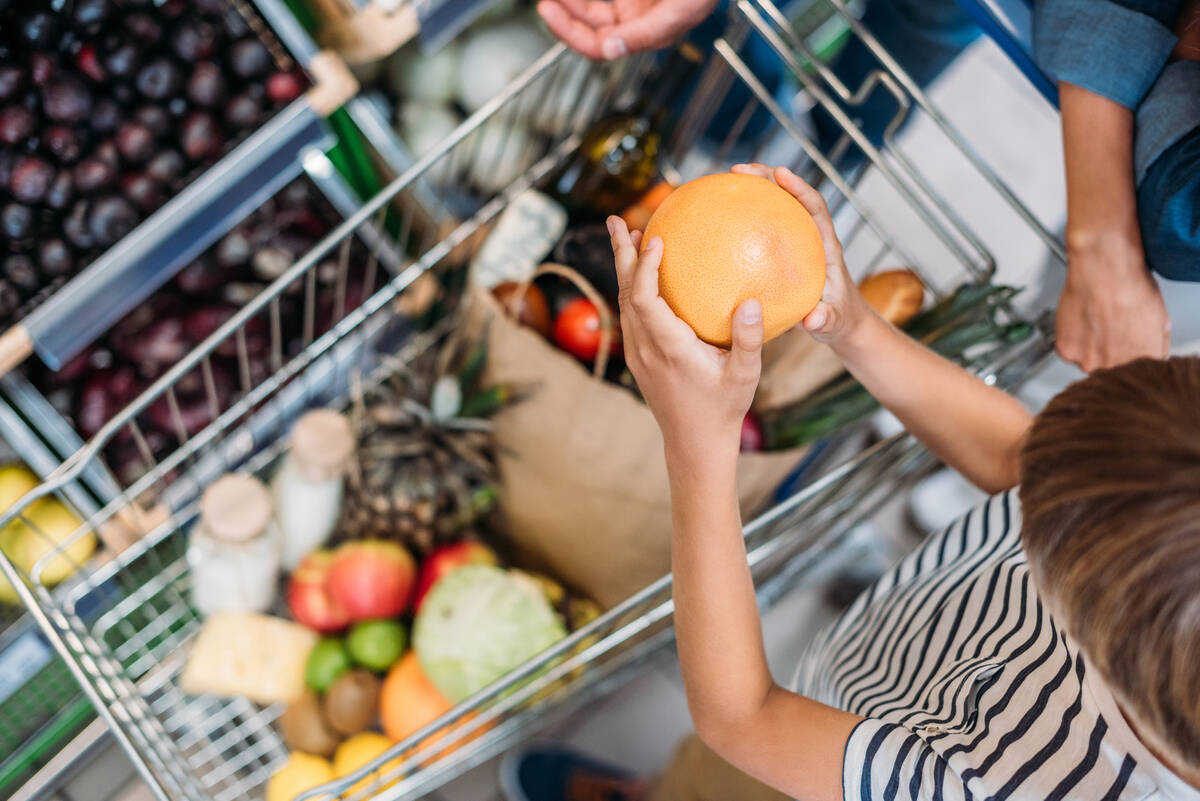Advice for cooking with your kids, raising adventurous eaters
When it comes to raising an adventurous eater, it is not just about coaxing kids to eat their veggies. Bringing up a child who can enjoy a cantaloupe as much as a cupcake takes patience and persistence, but it does not have to feel like a chore.
Kids may need to have frequent joyful experiences involving food to overcome the anxiety they may have around tasting the unfamiliar. Over time, cooking with your children can help build that confidence — and provide rich sensory experiences.
Here are five ways to enjoy cooking with your children while raising an adventurous eater along the way.
■ Engage other senses: For a hesitant eater, tasting an unfamiliar food can sometimes be intimidating. You can help your child explore foods when cooking using other senses besides taste. This helps build positive associations with food.
Kneading dough, rinsing vegetables and tearing lettuce all involve touching food and being comfortable with texture. The complex flavors we experience when eating food come from both taste sensations from the tongue and smelling with the nose.
While cooking with new ingredients, some children may feel too overwhelmed to taste. If this happens, you can try suggesting smelling a food first; this may provide a bridge to tasting in the future.
■ Use cooking to raise smart kids: There are so many lessons that can be taught while cooking.
Math concepts such as counting, measurement and fractions naturally unfold when navigating a recipe with kids.
Explaining how food changes with temperature or how certain foods can help our body be healthy provide great lessons in science.
While cooking with your child, practice new vocabulary as you describe how food looks, feels and tastes.
Following a recipe from start to finish helps build the skills for planning and completing projects.
■ Make cooking part of the family culture: The family meal can start in the kitchen as you cook together. Family meal preparation is an opportunity to celebrate your cultural heritage by passing down recipes.
Help your kids find new, seasonal recipes to add to your repertoire and family cookbook. Cooking together and prioritizing health over the convenience of processed food are great ways to lead by example and help your children buy into a culture of wellness.
Building daily and seasonal traditions around cooking together helps strengthen your family’s commitment to a healthy lifestyle.
■ Keep it safe: Teach kids the importance of staying safe while cooking by showing them how to hold kitchen tools safely, how to use oven mitts to protect hands from heat, and how to turn appliances on and off safely. Always supervise children when cooking to ensure they are sticking with safe and age-appropriate tasks.
The best way to keep cooking safe is to know your child’s abilities and their stage of development. A 4-year-old child, for example, may not be ready to sauté vegetables over a hot pan but may have the fine motor skills to rinse fruits or tear salad leaves.
Keeping safety in mind, it is not difficult to get kids — even toddlers — involved in the kitchen.
■ Ask for input: Children feel more included in mealtime when they are asked to be a part of meal preparation. Collaborate with your kids when selecting recipes for main dishes or sides. Let them help you make the shopping list and find groceries in the store or farmers market.
When cooking together, let children offer a critique of the foods you are preparing. Together you can decide what ingredients you should add to enhance the flavor. Talk about how people enjoy different tastes, and share your preferences with each other.
Letting children be “in charge” of details like how to set the table will help them feel invested in mealtime.
Over many years, cooking as a family will help develop a happy, adventurous eater with some pretty valuable life skills — and plenty of happy memories in the kitchen. With enough practice, your child will someday be able to cook you a delicious meal.
Dr. Nimali Fernando is a practicing pediatrician and the founder of the Dr. Yum Project, a nonprofit organization that provides cooking instruction and nutrition education to families.



















